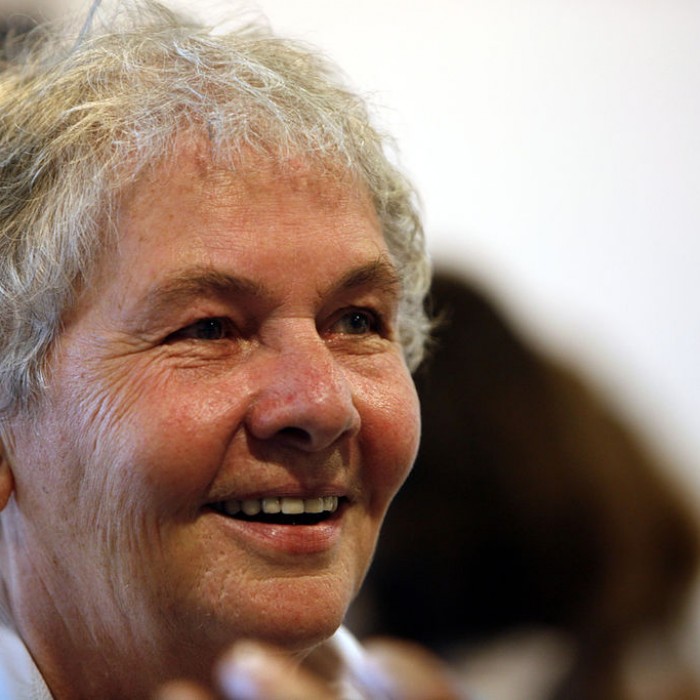
Christiane Nüsslein-Volhard (Born 20 October 1942) is a German biologist.
She won the Albert Lasker Award for Basic Medical Research in 1991.
She won the Nobel Prize in Physiology or Medicine in 1995, together with Eric Wieschaus and Edward B. Lewis, for their research on the genetic control of embryonic development.
Nüsslein-Volhard was educated at the University of Tübingen where she was awarded a PhD in 1974 for research into Protein–DNA interactions and the binding of RNA polymerase in Escherichia coli.
The experiments that earned Nüsslein-Volhard and Wieschaus their Nobel prize aimed to identify genes involved in the development of Drosophila melanogaster (fruit fly) embryos.
Nüsslein-Volhard is associated with the discovery of Toll, which led to the identification of toll-like receptors.
Since 1985 Christiane Nüsslein-Volhard has been Director of the Max Planck Institute for Developmental Biology in Tübingen and also leads its Genetics Department.
In 1986, she received the Gottfried Wilhelm Leibniz Prize of the Deutsche Forschungsgemeinschaft, which is the highest honour awarded in German research.
Since 2001 she has been member of the Nationaler Ethikrat (National Ethics Council of Germany) for the ethical assessment of new developments in the life sciences and their influence on the individual and society.
Her primer for the lay-reader, Coming to Life: How Genes Drive Development, was published in April 2006.
In 2004 Nüsslein-Volhard started the Christiane Nüsslein-Volhard Foundation (Christiane Nüsslein-Volhard Stiftung).
It is meant to aid promising young female German scientists with children. The foundation's main focus is to facilitate childcare as a supplement to existing stipends and day care.
Source: Link

1564 - 1616

1803 – 1882

1854 – 1900

1942 – 2016

1928 – 2014

1835 – 1910

1869 – 1948

1884 – 1962
1898 – 1963

1929 – 1993

1879 – 1955

1809 – 1865

1807 – 1870

1800 – 1859

1795 – 1821

1755 – 1793

1984 -

1989 – 2011

1943 – 2001

1815 – 1902

1929 – 1994

1767 – 1848
